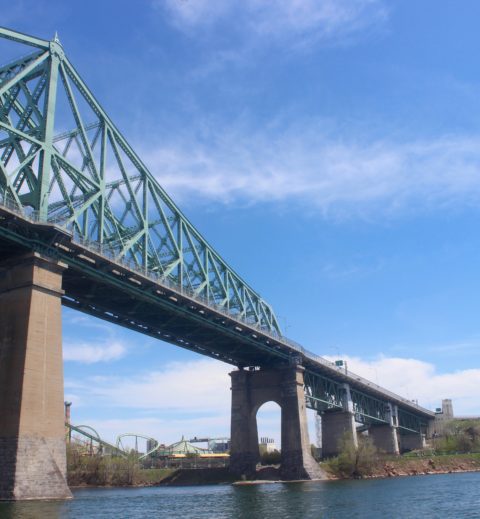Study in Canada
Why study in Canada
If you want to Study in Canada this page is for you. The reasons for studying in Canada are as numerous as the people who do it every year! In fact, Canada welcomes more international students than any other country in the world, including the U.S., China, and the UK, so they must be doing something right!
Canada is an increasingly popular destination for international students, attracted by its highly-ranked universities – seven of which are in the Times Higher Education Top 200 – and its staggering beauty and high standard of living. Sprawling between the Atlantic, Pacific, and Arctic oceans, Canada is the global leader in technological and scientific research and offers a vast selection of courses, and a streamlined route to getting a post-graduation work permit and eventually permanent residency.
Canada is divided into ten provinces and has two official languages – English and French -and a landmass that is bigger than that of the US, making it the world’s second-largest country, after Russia. Apart from Ottawa, the capital, there are three large metropolitan areas, Toronto, Montreal, and Vancouver, where you could choose to study in Canada.
Canada is one of the most culturally diverse countries on the planet and is highly ranked for its government transparency, economic freedom, and education system. The Canadian economy is the eighth largest, globally, and you will therefore find it easy to secure part-time work in its cities and larger towns.


What do I need to know before studying in Canada?


What else you need to know about Studying in Canada?
If you are thinking about Studying in Canada you need to know that Canada is home to the Rocky Mountains and the Great Lakes. Canada is not all frozen north, since it has hundreds of kilometers of prairies in the southwest, the largest forest on earth, the famous Banff National Park with its glaciers and landscapes which remind you of Switzerland, as well as active volcanoes. Obviously, the further north you go, the more snow and colder temperatures you will experience, but if winter sports is your passion, this is the country to try everything from skiing to snowboarding – just make sure you pack appropriate clothing, since temperatures have been known to drop to minus 40 centigrade in the winter. And that is cold…
Canada offers internationally recognised degrees taught by experts, urban living and unspoiled nature, affordable study programs, and lively, vibrant, and welcoming student communities in a multicultural environment. The Canadian approach to education is similar to that found in the US, with lecturers seeing their role as guiding students to become independent learners, communicate freely, be proactive and get involved in group work.






















Study in Canada: The Canadian Education System
If you want to study in Canada it is good to know how the Canadian education system works. The Canadian Education system is funded and organised at the provincial level since the federal government is restricted from funding indigenous education. A standardised curriculum and assessment criteria ensure that the quality of teaching and learning does not vary from one province to another – but there are significant differences in when children must start school, and how long they have to remain within the education system. Approximately 67 percent of schools in Canada are co-educational at every level.
The Canadian Education System - Kindergarten and primary school
In Saskatchewan and Manitoba, for example, children’s mandatory attendance starts at the age of seven, whereas other provinces offer kindergarten places for four and five-year-olds. Similarly, certain provinces expect students to stay on until they are 16, while others raise this to 18, or until they have passed their school diploma.
In general, kindergarten in Canada lasts from one to two years and prepares children for elementary education, teaching them the alphabet, counting, music, art, and how to interact with their peers.
Primary schools in Canada have one class teacher for all the subjects and focus on reading, maths, English, or French depending on the province, history, music, art, science, PE and social studies.
Study in Canada - Secondary schools
Canada has both private and public secondary schools, with the former supporting themselves through a tuition fee structure and, for the most part, being faith-based: Islamic, Catholic, Sikh, Hindu, etc.
Public schools in Canada are run by district school boards and have to follow a set curriculum which culminates in passing the secondary school diploma. There are also many public religious and language-based schools throughout Canada. The Canadian constitution guarantees education in your own language, so while Quebec has the largest percentage of French-speakers in the country, it has to provide English schools.
The province of Alberta has many charter schools, which teach according to their mission statement, but also have to follow the provincial curriculum. Alberta Education has accredited international schools in Abu Dhabi, Macao, China, Morocco, Mexico, Bermuda, Tokyo and Qatar.
As you can see, there is a great deal of diversity within the Canadian secondary school system. School days normally run from 8 am to 3 pm or 9 am to 4 pm, from Monday to Friday, for 190 days in the year.
Term start and end dates vary, according to the province. In general, children do not need to wear school uniforms, apart from pupils who attend Catholic high schools in Ontario, and most private schools. Certain, but not all, high schools run AP and IB programs.
Canadian schoolchildren, aged 15, are ranked sixth, globally, in terms of their competency in basic skills, and this reflects the fact that Canada invests six percent of its GDP in the education sector.
Study in Canada: Tertiary education
Tertiary education in Canada is broadly split into attending university or taking a vocational path. Vocational courses are practical and career-focused and offer certificates, apprenticeships, and diplomas in many fields, from skilled trades, to support roles in the professions, such as qualifying as a laboratory technician, and a diagnostic medical sonographer, paralegal, etc. You can gain a vocational qualification in many fields, including:
- Architecture and Construction
- Engineering
- Education and Training
- Health and Medicine: for example, nursing, therapy, fitness, pharmacy technician etc.
- Creative Arts
- Industrial Electrician Training
- Dental Hygiene
- Fitness
- Social Studies and Media
- Travel and Hospitality etc.
Study in Canada: courses taught in colleges in Canada
Vocational courses are taught in colleges of applied arts, colleges of technology, institutes of science, community colleges, and vocational colleges throughout Canada. It is possible to gain an associate degree at a vocational institution of education and transfer onto a university course, on the basis of the credits you have already acquired.
Technical vocation training typically lasts for two years, although certain courses can take four years to complete, if they lead to a trades certificate.
Bachelor’s degrees in Canada take three to four years to complete, at a research university, university college, or undergraduate university. International undergraduate satisfaction rates are high, with 96 percent of international students reporting that they were very satisfied with their university course, resources and teaching, stating that they felt safe and found Canadians tolerant and accepting.
There are currently 104 government-subsidised universities in Canada and 1.8 million students. Popular universities such as British Columbia and McGill have high numbers of international students, calculated at 31 per cent and 30.7 per cent respectively, and the overall number of applicants to Canadian higher education is going up from year to year.
Study in Canada - choosing a course
If you want to study in Canada you can choose from 15,000 programs for your undergraduate degree and, like in the US, you will be able to take one or more majors and minors, namely your main and subsidiary areas of study.
Unlike British universities, where you study for a named degree, when studying in Canada, you can combine unrelated programs, for example, science and history, within your bachelor’s timetable, so you are essentially creating your own course.
However, certain faculties, for example, engineering, ask you to commit to your choice of major as soon as you have accepted a place.
Other faculties and universities in Canada prefer you to take a number of core modules and decide, either at the end of the first or even the second year. You need to check this on the university website if you feel torn and undecided and want to take the time to commit to a major. Remember, it is possible to take a double major or joint honors – and this will be noted on your degree certificate. The modules you take in the first year are usually mandatory and you will only start to plan your degree journey during the second year. It is reasonably straightforward to change majors, but remember that this could end up lengthening your course if you have to catch up and take extra modules.
Study in Canada- Highest-ranked Canadian universities
Top Universities in Canada:
|
University in Canada
|
Location
|
QS Global Rankings, 2022
|
|---|---|---|
|
University of Toronto
|
Toronto
|
26
|
|
McGill University
|
Montreal
|
= 27
|
|
University of British Columbia
|
Vancouver
|
46
|
|
University of Montreal
|
Montreal
|
111
|
|
University of Alberta
|
Edmonton
|
126
|
|
McMaster University
|
Hamilton
|
140
|
|
University of Waterloo
|
Waterloo
|
149
|
|
Western University
|
London(Ontario)
|
203
|
|
University of Ottawa
|
Ottawa
|
230
|
|
University of Calgary
|
Calgary
|
235
|
Where to study in Canada?
You will have no difficulty in finding the precise course you are interested in studying in Canada, given the choice of 15,000 programs, and thus choosing the right location and the right university will be key to shaping your student life in Canada. Read through the following brief introduction to Canada’s major university cities and see what catches your eye.
Student cities in Canada
Study in Canada, Toronto
The capital of Ontario is a multicultural hub, with a population of three million, where 140 languages are spoken and 17 percent of students who study here are from foreign countries. A regular on the world’s list of most livable cities, Toronto has a large international business sector, a thriving foodie and arts scene, and an attractive modern skyline that towers over historical monuments, as well as a reputation for high fashion and creativity. Toronto is the Canadian equivalent of New York, bright, glittering, a place of hustle and bustle – the ultimate urban center.


Study in Canada, Montreal
Canadians view Montreal as the cultural heartbeat of the country. “The city of saints” is progressive, friendly, and welcoming. Home to the largest comedy festival in the world, Just For Laughs, the famous Montreal Jazz Festival and the winter Igloo fest as well as the Osheaga Music and Arts Festival, Montreal is an experimental hotbed of poetry, performance arts, design, music, and dance. Think of Leonard Cohen, who epitomizes the spirit of this bilingual city. Winters can be harsh here, so come prepared and get ready to participate in everything this amazing city – the second largest in Canada – offers. The cost of rented accommodation if you want to study in Canada is very reasonable in Montreal and there is a comprehensive public transport system. The city is bicycle-friendly, which is helpful when the bars close at a very late 3 am and you have lost track of time in one of Montreal’s many neighborhoods dedicated to eating out and entertainment.


Patricia, McGill University
"I fell in love with Montreal within the first week of being there (once my culture shock subsided). Now I want to live in the city I miss every day. It was an incredible experience for me and I would do it again, if I could, in a second."
Study in Canada, Vancouver
Situated on Canada’s west coast, The New York Times has described Vancouver as “Manhattan with mountains”, and this relaxed city basks in some of the most stunning landscapes Canada has to offer. An eight-minute ride on the downtown Aerial Tram will take you to the peak of Grouse Mountain where you can go trekking, climb 20 stories to visit the world’s first wind turbine glass viewing pod, or grab a zip-line and soar across the surrounding lakes and peaks. Vancouver is the second largest port in North America and offers a large range of cruises, firework displays, or leisurely trips to watch the whales which circle the coast. Vancouver enjoys a temperate climate and outdoor activities will form part of your everyday life, from winter sports to attending BC Lions matches at BC Place stadium, with its enormous retractable roof. If you appreciate nature and want a slightly less frenetic pace of life than Toronto, and Montreal, then why not consider studying in wonderful Vancouver?


Is Vancouver a good place to study?
Canada has a variety of desirable options for international students, but Vancouver is among the top destinations for education abroad. With its eclectic mix of cultures and traditions and the 2015 ranking by The Economist as the third most liveable city globally, Vancouver is a great choice for international students
Study in Canada, Edmonton
Edmonton is known as the festival capital of Canada and runs 40 family-friendly events every year. Students can enjoy ballet, live theatre, rock concerts, and all types of performances. Every winter an ice palace makes its appearance, constructed with turrets and moats, lit from within, and exactly how we all imagine a fairytale castle might look. If you are lucky, you will be able to gaze in wonder at the castle while watching the Northern Lights streak across the sky. Edmonton is well-known for its parkland system which runs for 160 kilometers and offers unlimited trekking and trails. In contrast, the astonishing West Edmonton Mall was built to counteract the 88 days of snow which occur every year and contains 800 shops, an underground aquarium, an ice rink, a water park, a theme park, and all types of dining options. There is a lot to do here while studying in Canada, and the local community is said to be extremely friendly and welcoming to international students.


Study in Edmonton
Edmonton is one of Canada's biggest education hubs and is home to well respected universities and other higher education institutions. As well as having several large public universities, Edmonton is also home to colleges and institutions specialising in areas such as technology and art.
Study in Canada, Ottawa
Ottawa, the capital, has a population of under one million and is an administrative city, with a slightly slower pace of life than Toronto and Montreal. A very safe city with a low crime rate, it is situated on the south bank of the Ottawa River with the Gatineau Hills a mere 10 minutes away. The city is known for its gastronomy, the national museums, and galleries, and the Rideau Canal, a World Heritage Site where you can go kayaking, paddle-boarding, and boating, or take long walks. ByWard Market is another bustling destination in the city, with many indoor and outdoor stalls selling eclectic goods to the passing crowds of shoppers. Ottawa’s modern architecture sits cheek by jowl with its neo-gothic parliament and historical neighborhoods. The capital puts on the globally acclaimed Bluesfest every year, as well as the popular Tulip Festival and a host of other events. Ottawa is a clean, comfortable and relaxed city to study in, and the University of Ottawa is the largest bilingual university in the world.


What can I study in Ottawa?
Studying in Ottawa
Students have a diverse palette of subject areas to choose from: engineering, architecture, anthropology, business, languages, computer science, economics, law, mathematics, political science, social work, journalism, Canadian studies and many more.
Study in Canada, Calgary
Calgary still holds on to, and celebrates, its frontier town roots, and its renowned ten-day Calgary Stampede draws visitors from all around the province, and further afield, to watch cowboys in action. Calgary has 65 days of snow a year and is a young town, whose inhabitants have an average age of 36, so it offers a wide range of clubs, bars, cafes, and restaurants for your entertainment. Nevertheless, students tend to fall in love with outdoor activities if they study in Calgary, and are spoilt for choice. There are three national parks within a two-hour drive of Calgary, while the Rocky Mountains are a mere 90 minutes away. Parks, lakes, ski resorts, and nature reserves are all within easy reach of the university -weather permitting. The University of Calgary has taken the cold into consideration and constructed tunnels that link the campus buildings. cost of living is lower here than in Toronto, Montreal, and Ottawa, and student satisfaction rates for life in Alberta are in the high 90s.
How to Apply to an International University in Canada
You have decided to study in Canada, what now? Once you have chosen a course and a university, you will need to apply online to each individual institution, since Canada does not have a centralised system like the US, UK, and many European countries.
Each university has its own requirements, application pack and fee.
You should budget to pay between 70 and 190 euros per application.
Fees also vary between programs and so it is essential to read the university website very carefully and make sure that the modules, approach, and scope of the degree are precisely what you are looking for since multiple applications can be quite expensive – and are certainly time-consuming to fill in.
Canadian universities have three intakes, in September, January and, for a limited number of programs, April. While deadlines differ, as a rule of thumb December-March are the deadlines for September starts, while you need to have uploaded your documents between September and November for the January intake.
The September intake is the most popular and therefore the most competitive.
Bear in mind that deadlines also vary according to province, territory, and course – so you are well-advised to check precise dates for the year and intake you wish to start your studies, by looking at individual websites or contacting Elab. You could well find that certain universities give you a longer period than others to prepare your papers.
Study in Canada - Entry requirements for Canadian Universities
NB: You will need to ensure that all your documents are transcribed into either English or French and notarised.
You will be asked for some, or all of the following, depending on the university:
- Proof of completion of secondary education/diploma
- TOEFL or IELTS certificate, if the course you wish to study is taught in English. Your TOEFL score should be 560-600, and IELTS must be 6.5 overall, with no less than a 6 in each individual paper.
- If you are applying to study a French-taught course, then you must present the admissions committee with your DALF or DELF, or equivalent proof of proficiency.
- Copy of your passport
- Photographs
- Financial documents which establish that you are capable of supporting yourself through your studies.
- Transcripts of your secondary education content and grades
- A letter of motivation
- One or more references
- Possibly a portfolio – depending on the subject you intend to study
- A statement about your extracurricular interests and volunteering experiences
- Any awards you may have received
- Community service experiences
- Sporting achievements
Canadian universities have a GPA cut-off point, which depends on the status, prestige, and popularity of the institution, and ranges from 65-to 90, so your grade transcripts are important for the application process.
You may be asked to take part in an online interview.
You should receive an acceptance or a rejection notification within eight weeks, although this can be longer if you are applying for the very busy September intake. Since Canadian universities operate on a first-come, first-served basis, try to get all your papers in as soon as possible. Remember, you will then need to apply for a study permit, which includes an electronic travel authorization, or eTA before you can start planning your departure, finding accommodation, and getting organized to study in Canada. The study permit requires an unconditional offer of a place, to be processed, so it is never too early to begin applying.
What is the difference between a study permit and student visa to Canada?
EU students do not need to apply for a student visa, but need a study permit, which lasts for the length of their studies plus 90 days , as well as an eTA, which allows them to enter the country and is valid for five years. You must apply for the study permit before coming to Canada . In order to get the study permit you will have to provide some or all of the following:
- An acceptance letter from a recognised university on the DLI (Designated Learning Institutions )list, which specifies a start and end date for your course
- Two photographs
- Demonstrate that you have the financial means to pay for your tuition fees, living expenses, and return transportation while studying in Canada. This could be – a Canadian bank account in your name, if you’ve transferred money to Canada; Guaranteed Investment Certificate (GIC) from a participating Canadian financial institution; your bank statements covering the last four months; or a bank draft that can be converted to Canadian dollars.
- Prove you are in good health and undergo a medical examination (if required)
- A police certificate of good behaviour from your home country
- You may also be asked to provide biometrics or attend an interview
The Student Direct Stream is the fastest way of getting your permit, but can only be used by citizens of approved countries. If you do apply via the SDS, you will get a response within 20 days, while the more standard route can take upwards of a month. The study permit will cost you 100 euros or thereabouts, but the eTA is free since it forms part of the application.
NB: If you are applying to study in Quebec, you will also have to get a CAQ, a Quebec Acceptance Certificate, which will ask you for general information about yourself, your address in Quebec, etc. This is essential if you are applying to study at McGill University, for example, because you cannot apply for the study permit until you have the CAQ.


How Much Does it Cost to Study in Canada?
Tuition fees for international undergraduate students vary from course to course and university to university, averaging out at 18,000 euros, although subjects such as dentistry, medicine, and engineering are more expensive than business and management courses.
Prestigious universities in Canada are significantly more expensive than lower-ranking institutions, with the University of Toronto’s undergraduate fees ranging from 26,000-to 46,000 euros a year, whereas the University of Calgary charges foreign undergraduate students approximately 16,000 euros, and the University of Guelph charges upwards of 7,000 euros.
When it comes to accommodation, British Columbia is almost twice as expensive as Alberta and Quebec, with Toronto topping the list of most expensive Canadian cities, followed by Ottawa, Vancouver, and Montreal.
You are entitled to work up to 20 hours a week during term-time and full-time during the vacation periods. The most popular jobs for students in Canada include:
- Teacher’s assistant
- Barista
- Server
- Tutor
- Nanny/babysitter
- Uber driver
- Dog walker
- Freelancer
- Translator
- Salesperson
It has been estimated that students need around 800 euros a month to cover their food, accommodation, groceries, spending money, books, mobile phone, and internet contracts. This is an affordable sum when compared with the US, and part-time work can cover a large percentage of your monthly expenses if budget is a major consideration
Is going to Canada to study worth it?
Yes!
Canada offers an excellent education, a liberal and multicultural environment, and a magnificent and diverse landscape that spans coastal mountain ranges, icebergs, and plains. Canadian degrees are respected all over the world and costs are affordable. It is hardly surprising that so many international students decide to stay on after they have their bachelor’s, and take the postgraduation work permit route to Canadian citizenship, having fallen in love with the country and its people.
How your application with Elab will look like?
![5 steps to success Elab Education Laboratory [ENG]](https://elabedu.eu/wp-content/uploads/2022/06/english-5-steps-poster-03-1024x580.png)
![5 steps to success Elab Education Laboratory [ENG]](https://elabedu.eu/wp-content/uploads/2022/06/english-5-steps-poster-03-1024x580.png)
Step 1: Student Induction & Diagnostics
- Preliminary notes of students academic record, interests and aspirations
- Student Diagnostics
Step 2: University Search & Student Profile Development
- Preparation of Universities Research Table
- Extra-curricular Activities Development (if applicable)
Step 3: Process Planning & Preparation
- Finalise the overall process plan & individual Timeline
- Review Mentor and Tutor plans in relation to documents, exams and activities
- Passing the required entrance exams
Step 4: Application Finalisation & Submission
- Update Application Checklist for Final Choice Universities requirements
- Submit student academic application
Step 5: Offer Acceptance & Decision Time
- Review university offers
- Provide students with contacts and links to accomodation offices
Study abroad with Elab – what our applicants are saying about Elab’s help:
What do you think about Elab's help?














